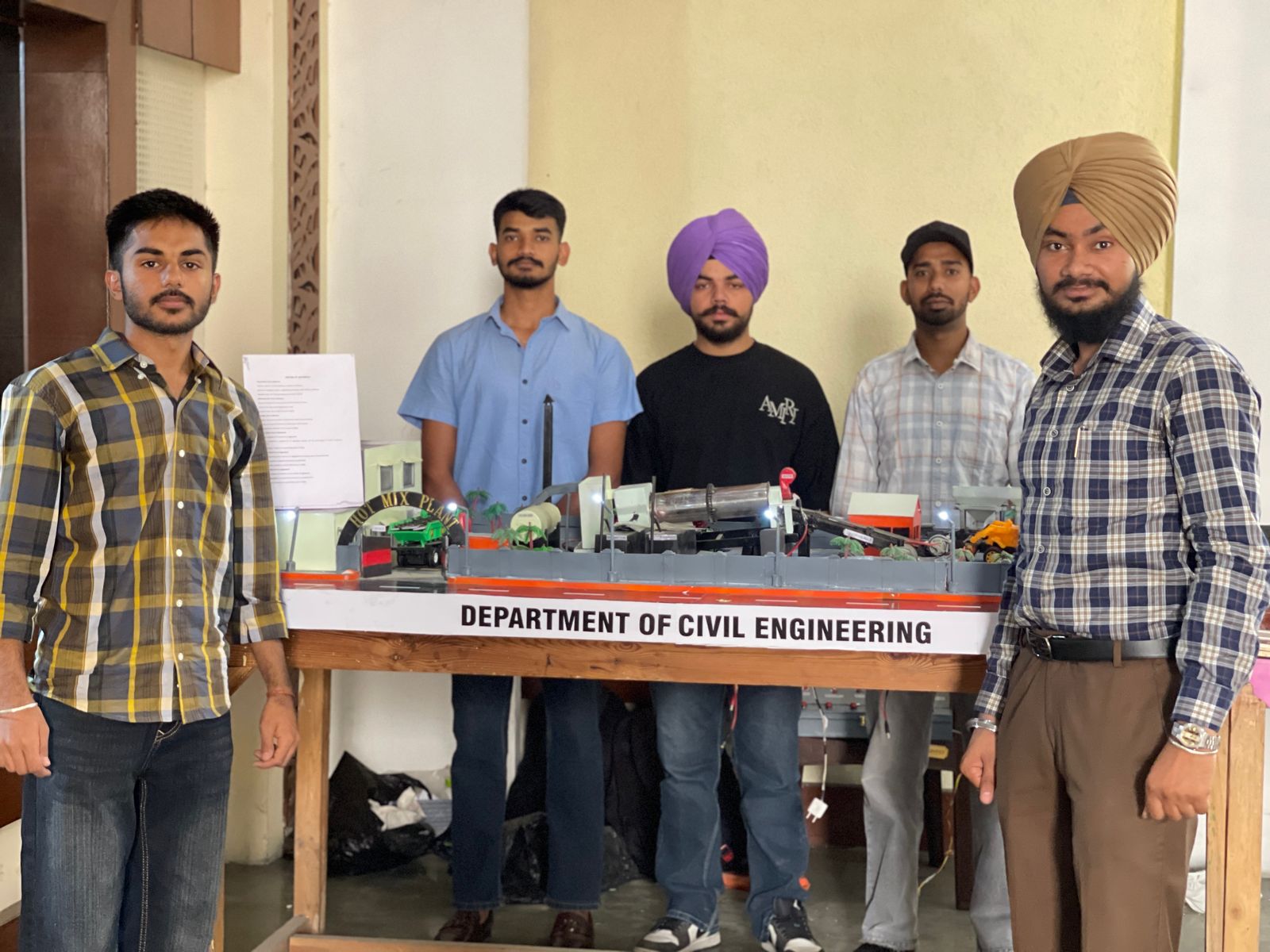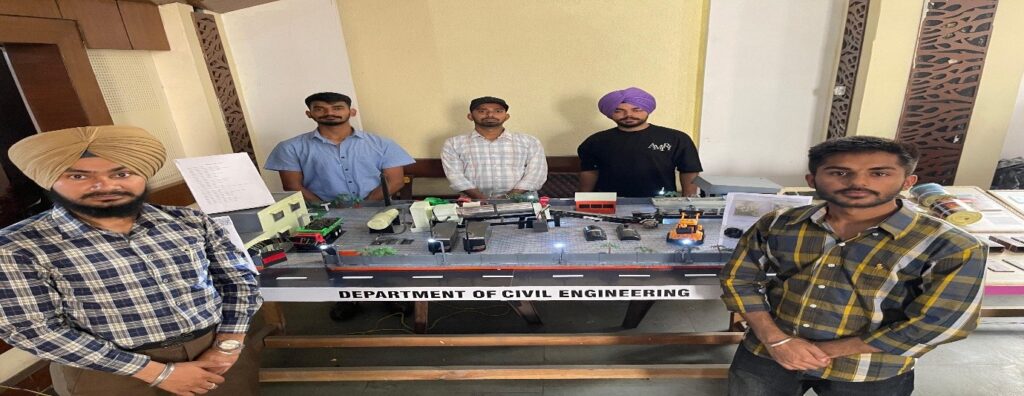A SUSTAINABLE SHIFT IN INFRASTRUCTURE
INCORPORATING RECYCLED PLASTIC AND RUBBER IN HOT MIX ASPHALT (HMP)
Article by: Er. Vaibhav Bansal (B.Tech, LLB TYC (P)
Bureau Chief
In the face of mounting environmental pressures and the ever-growing volume of non-biodegradable waste, particularly plastics and rubbers, civil engineering professionals are being called upon to rethink traditional practices and adopt sustainability as a core design and execution principle. Addressing this challenge head-on, a dedicated group of diploma students from Mehr Chand Polytechnic College, Jalandhar, under the mentorship of faculty members Er. Rajesh Kumar and Er. Kanav Mahajan has undertaken a pioneering initiative: the use of recycled plastic and rubber waste in the construction of bituminous roads using Hot Mix Plant (HMP) technology.

The Environmental Imperative
India generates over 3.5 million tonnes of plastic waste annually, according to the Central Pollution Control Board (CPCB), and much of this ends up polluting landfills and water bodies. Rubber waste, especially used tires, poses similar environmental hazards. Given the scale of infrastructure development in India — particularly roads under programs like Bharatmala and PMGSY — there exists a golden opportunity to channel this waste into construction rather than letting it go to waste.
Project Objective and Methodology
The core aim of the study conducted by the students was to investigate an eco-friendly and cost-efficient alternative to conventional road construction materials. The team explored the modification of bituminous concrete by introducing shredded plastic and rubber waste into the hot aggregate mix prior to the addition of bitumen in the HMP.
This method — often referred to as dry process modification — leverages the thermoplastic property of plastic, which melts and coats the aggregates, improving the adhesion between the bitumen and aggregates. Rubber particles, on the other hand, enhance elasticity, tensile strength, and overall durability of the pavement.
Laboratory Investigations
A range of tests were conducted in accordance with Bureau of Indian Standards (BIS) and MoRTH (Ministry of Road Transport and Highways) specifications. Tests performed included:
-
Penetration, Softening Point, and Ductility Tests on bitumen.
-
Marshall Stability and Flow Tests on bituminous concrete.
-
Water Absorption and Stripping Value Tests to assess resistance to water damage.
Findings: The modified bituminous mix showed higher stability values, improved resistance to deformation, and better moisture resistance compared to conventional mixes. These improvements directly translate into longer service life, reduced maintenance costs, and safer roads.
Legal and Regulatory Framework in India
The initiative aligns with India’s existing legal and policy framework encouraging the use of plastic waste in road construction:
-
MoRTH Guidelines (2015 onwards): Mandates the use of plastic waste in road construction within 50 km of urban areas with a population of more than 5 lakhs.
-
Plastic Waste Management Rules, 2016 (amended in 2022): Encourages the extended producer responsibility (EPR) model and recycling of plastic waste through integration in public infrastructure.
-
IRC SP:98-2013 and IS 15462:2004: Provide technical guidelines on the use of waste plastic in bituminous mixes for road construction.
These policies not only validate the technical feasibility of using waste plastic and rubber but also offer institutional support for large-scale implementation.
Socio-Economic and Sustainability Benefits
-
Waste Management: Significant reduction in plastic and rubber waste, easing landfill pressure.
-
Cost Efficiency: Lower construction and maintenance costs due to enhanced durability.
-
Employment Generation: New opportunities in waste collection, segregation, and processing.
-
Environmental Protection: Reduction in carbon footprint and better air quality due to fewer potholes and reduced dust emissions from damaged roads.
Future Prospects and Scalability
Given India’s massive road network, the scope of replicating such sustainable models across urban and rural regions is vast. With the necessary legal mandates already in place, the next step lies in:
-
Scaling up processing units near construction sites.
-
Standardizing the mix design parameters for different climatic zones.
-
Incorporating this methodology into the engineering curriculum and contractor training programs.
Result
This research project is a testament to how grassroots engineering innovation, when aligned with policy frameworks and environmental consciousness, can offer tangible solutions to real-world challenges. The students of Mehr Chand Polytechnic College have not only validated a viable alternative to conventional road construction methods but have also set an inspiring example of how academic institutions can contribute meaningfully to national sustainability goals.
Prepared by:
Arpit Bhatia, Ekamjot Singh, Abhinandan Kumar, Yuvraj Singh, Yogesh Virdi
Diploma Final Year Students, Department of Civil Engineering
Mehr Chand Polytechnic College, Jalandhar
Guided by:
Er. Rajesh Kumar & Er. Kanav Mahajan
Lecturers, Civil Engineering Department
Note to Practitioners and Aspirants:
As India transitions toward a circular economy, projects like this offer a crucial blueprint for integrating engineering excellence with environmental stewardship. We encourage professionals in public works, municipal planning, and infrastructure valuation to explore similar innovations in their practices and help build a greener, more resilient India.

